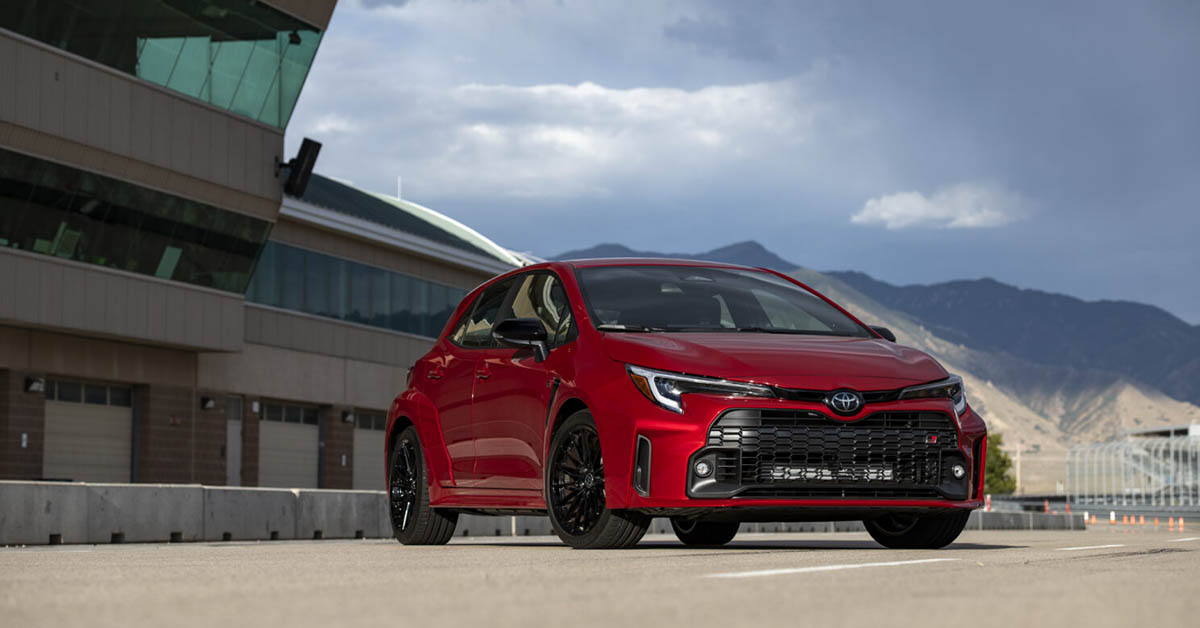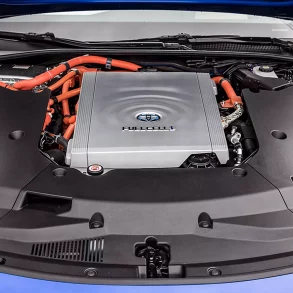Summary
- Toyota and Lexus lead in reliability, with fewer issues per 100 units compared to competitors.
- Their success is attributed to innovation and strict quality control, enhancing their reputation among consumers.
- Toyota’s focus on electrified vehicles, including hybrids and EVs, aligns with growing environmental concerns, further boosting their market position.
- The correlation between reliability and sales numbers is clear, with Toyota’s dependable vehicles driving significant global sales.
- Other manufacturers face challenges in matching Toyota’s reliability, impacting their sales and market share.
In the world of automobiles, very few factors are as important to customers as reliability. In fact, many studies on the subject show that above features, power, and comfort, reliability affects the purchase decision the most.
The recently released 2024 Vehicle Dependability Study, conducted by J.D. Power & Associates, sheds light on the reliability landscape within the automotive industry. A comprehensive analysis of vehicle dependability, it covers all aspects of reliability, from mechanical issues to software, firmware, and infotainment issues.
Issues Per 100 Units
According to the findings from this study, Toyota and its luxury sub-brand Lexus have emerged as frontrunners in reliability, whereas Chrysler, alongside many of its Stellantis NV brand partners, finds itself at the bottom of the list.
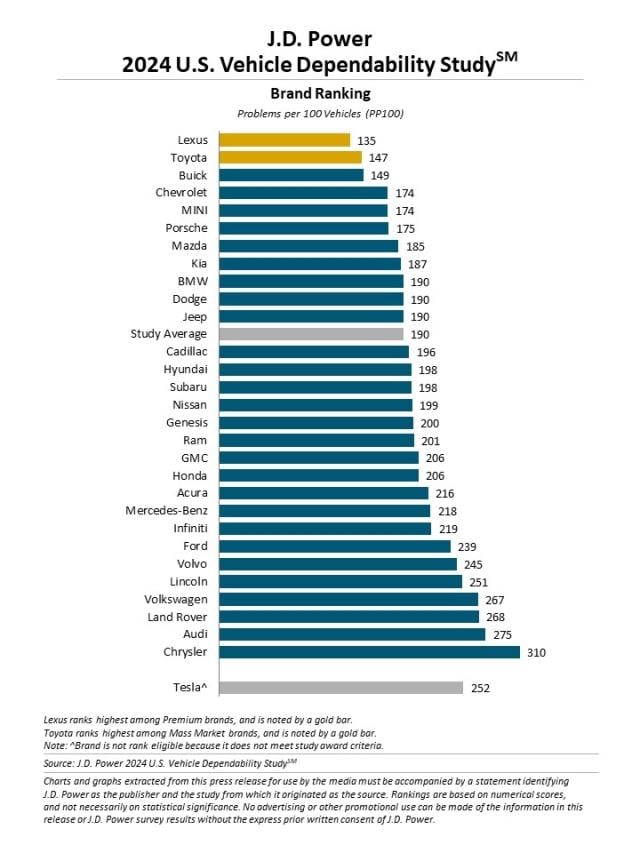
The study quantifies reliability by measuring the number of reported issues per 100 units, as this metric serves as an indicator of a vehicle’s dependability over time. Toyota and Lexus have demonstrated exemplary performance in this regard, with 147 issues per 100 units for Toyota, and 135 per 100 for Lexus. This averages out to about 1.41 issues per vehicle, which is astonishing reliable.
On the flip side, Chrysler has faced significant challenges, ranking at the bottom of the reliability spectrum with 310 issues per 100 units. In simpler terms, for every Chrysler vehicle sold, it can be expected to have 3 or more issues affecting its reliability. This discrepancy underscores the critical importance of reliability in shaping consumer perceptions and purchasing decisions.
Toyota and Lexus Lead the Pack
Toyota’s success can be attributed to its relentless pursuit of innovation and stringent quality control measures throughout the manufacturing process. This is something that has been ingrained in the company’s corporate culture since its inception, which is why many of older Toyota models still run almost flawlessly today, decades beyond their life expectancy.
Where this ingrained culture becomes vitally important is in the emerging EV automotive landscape. Just as much as power, comfort, and other features have affected sales, historically strong reliability has led to Toyota becoming a favorite of many Green-oriented buyers. If you include hybrids, plug-in hybrids that can run in EV only mode, and pure EV’s, the sales data from 2023 shows that fully a third of global vehicles sold were electrified in some form.
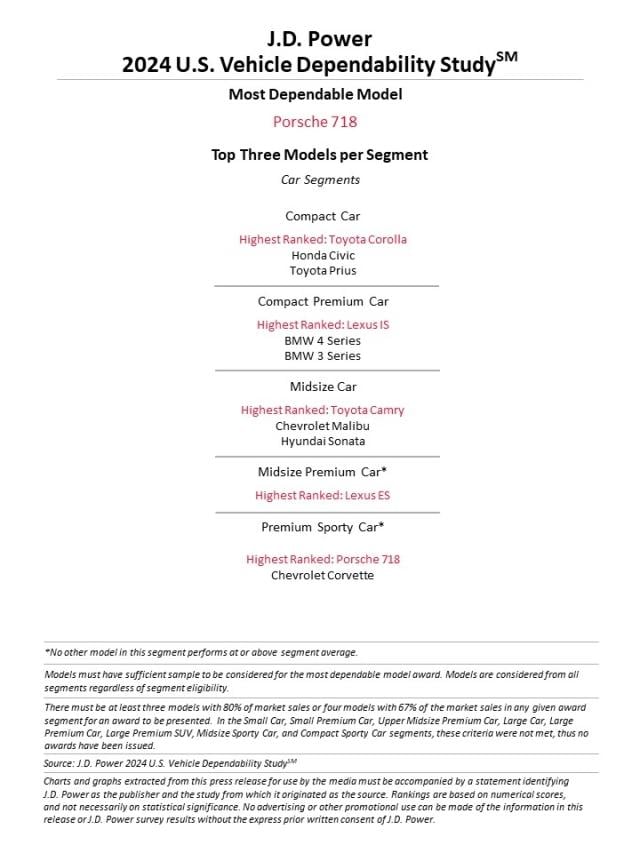
Where this number comes into significance is that Toyota/Lexus moved 11.2 million vehicles in 2023. That comes to roughly 3.5 million electrified vehicles, with pure EV’s making up about one third of those units. For comparison, Tesla, the “biggest” producer of EVs, moved only 1.8 million EVs in 2023, or just over half of what the Japanese giant moved.
It must be pointed out, however, that Tesla only makes EVs, while Toyota/Lexus make hybrids and pure EVs, so there is a slight skew there. Still, in that same J.D. Power study, Tesla encountered 2.52 issues per unit sold, which, coincidentally, is just under twice the amount of issues that the Japanese giant encountered across all of their vehicles.
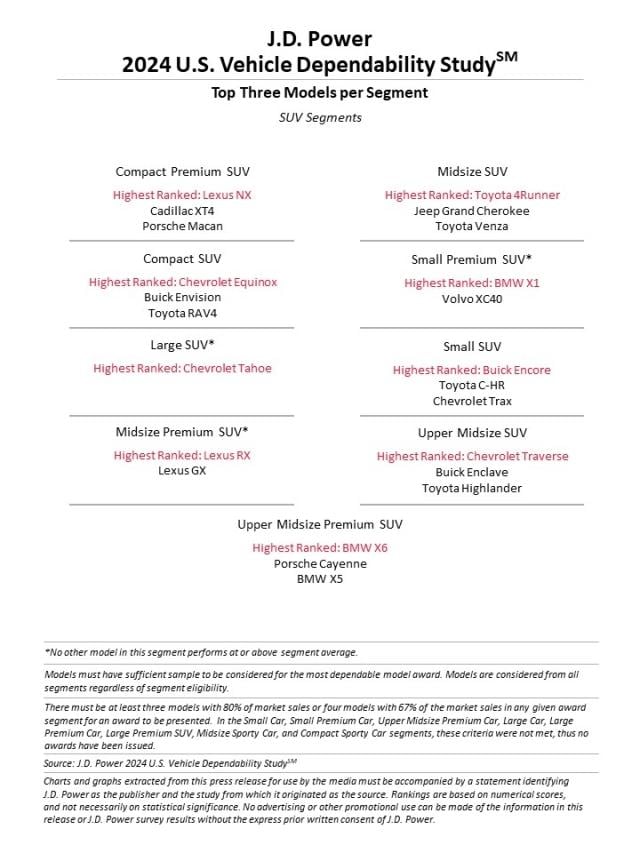
Even paragons of reliability such as Hyundai/Kia (~1.9 issues per vehicle), Porsche (1.75 issues per vehicle), and Honda (2.06 issues per vehicle) all fell short of Toyota/Lexus’s standards. These other automotive brands face an uphill battle as the gap between the industry leading Toyota and their counterparts remains evident. As consumers increasingly prioritize reliability in their purchasing decisions, Toyota and Lexus stand poised to capitalize on their sterling reputation and maintain their competitive edge.
Reliability & Sales Numbers
The correlation between reliability and sales numbers is undeniable, with consumer preferences heavily influenced by a vehicle’s track record for dependability. Toyota and Lexus, with their stellar performance in the 2024 Vehicle Dependability Study, have already shown the effect with the aforementioned 11.2 million vehicles sold in 2023. This was a significant increase of nearly a million units over 2022’s 10.25 million units sold globally.
Conversely, brands grappling with reliability issues, such as Chrysler, are starting to lose sales outright. While the 1% loss of sales experience YOY 2022 to 2023 might now sound like much, do keep in mind that Chrysler is owned by Stellantis NV, who across all their brands (Dodge, RAM, Jeep, Chrysler) shared that 1% decline.
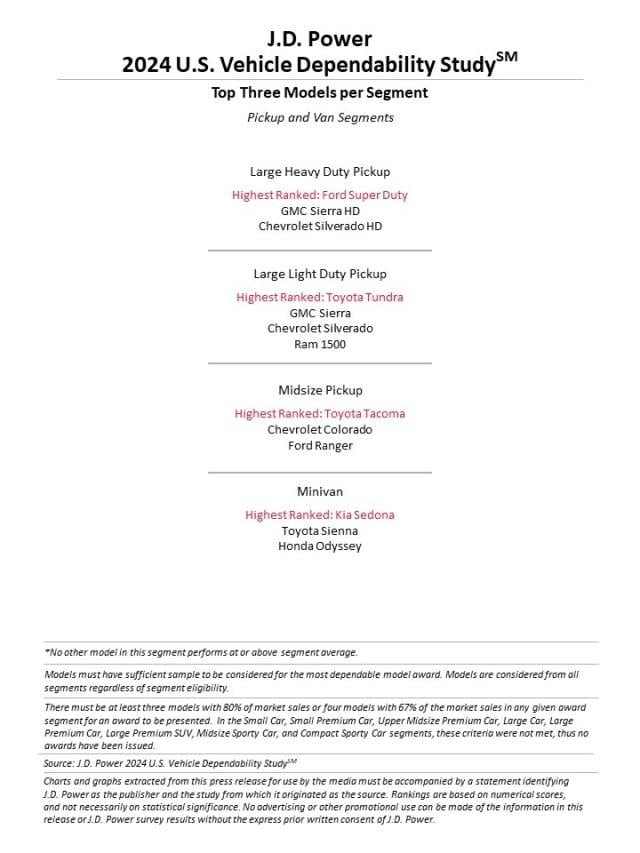
Stellantis, overall, moved only 1.527 million units in 2023, compared to 1.547 in 2022. Of that, all four brands shared reliability issues at nearly twice the rate of Toyota/Lexus, according to the J.D. Power study. This, despite Toyota/Lexus moving about 10 times the units that Stellantis produced.
Bringing it all together, the J.D. Power reliability study shows that reliability, if not the most important, is one of the key factors in purchase decisions for customers. We believe that this is exemplified by Toyota/Lexus selling the most vehicles of any manufacturer globally for the past two years, and why they are getting repeat business. Customers want to be able to commute, perform errands, move things around and spend the least amount of time and money getting issues repaired.
With this in mind, it’s little wonder why Toyota and Lexus are both enjoying increases in sales, and why cars such as the Toyota Corolla are often rated as the best family car or highest volume production car in the world year to year. We can only hope that other manufacturers will catch up in reliability, to provide a good amount of competition across the industry, as the economy recovers and more and more potential customers have more and more disposable income to buy their next car with.

